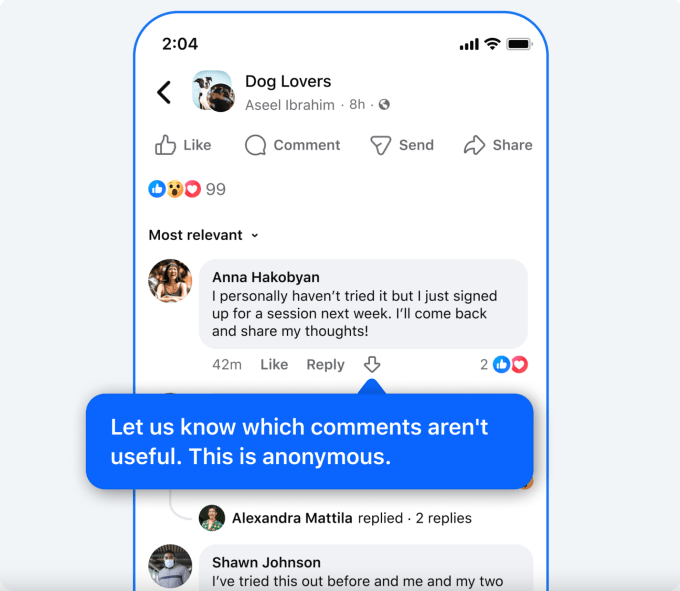
<strong>Image Credits:</strong>Mateusz Slodkowski/SOPA Images/LightRocket / Getty Images
Facebook Spam Content Crackdown: Platform Cuts Reach and Monetization for Low-Quality Posts
Meta initiates Facebook spam content crackdown to improve feed quality. (Image Credits: Mateusz Slodkowski/SOPA Images/LightRocket / Getty Images)
Table of Contents
Facebook Spam Content Crackdown Announced
In a significant move toward improving content quality, Facebook has announced a comprehensive Facebook spam content crackdown that will target accounts sharing low-quality posts. According to Meta’s official announcement on Thursday, the platform will begin reducing the reach of accounts posting spammy content and making these accounts ineligible for monetization opportunities.
This Facebook spam content crackdown also includes intensified efforts to remove accounts engaged in coordinating fake engagement activities and those impersonating other users. The initiative represents a significant shift in how the platform manages content quality and addresses growing concerns about feed pollution.
Meta acknowledges that certain accounts on the platform deliberately attempt to manipulate the algorithm to increase their visibility or gain unfair monetization advantages. This behavior has resulted in users’ feeds being flooded with low-quality, irrelevant content rather than meaningful posts from friends, family, and legitimate creators.
Key Elements of the Facebook Spam Content Crackdown
- Reducing reach for accounts sharing spammy content
- Revoking monetization eligibility for spam accounts
- Removing accounts coordinating fake engagement
- Taking action against account impersonation
- Introducing new comment management tools
Return to “OG Facebook” Experience
The Facebook spam content crackdown aligns with Meta CEO Mark Zuckerberg’s recent promise to return to “OG Facebook” – an era when users’ feeds primarily featured authentic content from real people rather than algorithm-driven recommendations and commercial posts.
This initiative represents a strategic pivot for the platform, which has faced criticism in recent years for prioritizing engagement over content quality. The effort to crack down on spammy content signals Meta’s recognition that many users prefer the original Facebook experience centered around meaningful social connections.
Recently uncovered internal emails from 2022 revealed that Zuckerberg had expressed concerns about Facebook losing cultural relevance. The current Facebook spam content crackdown appears to be part of a broader strategy to revitalize the platform and recapture its original appeal.
Targeting AI-Generated Spam Content
Although Meta’s announcement doesn’t explicitly mention AI-generated content, the Facebook spam content crackdown comes at a time when AI-generated “slop” is becoming an increasingly serious problem across all major social media platforms, including Facebook.
This type of machine-generated content is often created at scale with the primary purpose of gaming algorithms to generate traffic and ad revenue, rather than providing value to users. While Facebook hasn’t specifically addressed this issue in their announcement, the parameters of their Facebook spam content crackdown appear broad enough to encompass AI-generated spam.
As artificial intelligence tools become more accessible and sophisticated, social platforms face growing challenges in distinguishing between genuine human-created content and mass-produced AI content designed to exploit recommendation systems. The measures outlined in Facebook’s new policy could help address this emerging problem.
Types of Spammy Behaviors Being Targeted
The Facebook spam content crackdown specifically identifies several types of spammy behaviors that will result in reduced reach and monetization ineligibility:
Behaviors Subject to Facebook Spam Content Crackdown
- Excessive Hashtag Use: Accounts that share content with lengthy captions accompanied by an excessive number of hashtags
- Irrelevant Captions: Posts featuring content with captions that are unrelated to the actual content (e.g., an image of a dog with a caption about airplane facts)
- Spam Networks: Coordinated networks of accounts created to share identical spammy content
- Fake Engagement: Accounts participating in coordinated efforts to generate artificial engagement metrics
- Impersonation: Accounts that pretend to be other users or entities
Meta emphasizes that while the intentions behind some of these posting practices aren’t always malicious, they collectively contribute to a degraded experience by drowning out authentic, original content from legitimate creators and everyday users.
As part of the Facebook spam content crackdown, the platform will also target spam networks that create hundreds of accounts to distribute identical low-quality content. These coordinated efforts will be identified and made ineligible for monetization.
Combating Fake Engagement and Comments

New tools for combating irrelevant comments as part of Facebook spam content crackdown. (Image Credits: Facebook)
A key component of the Facebook spam content crackdown is addressing fake engagement in comments sections. The platform will reduce the reach and visibility of comments that its systems detect as fake engagement, helping to preserve the integrity of discussions.
Additionally, Facebook is testing a new feature that will allow users to signal which comments are irrelevant or don’t fit the context of the conversation. This community-driven approach to content moderation complements the platform’s automated systems and provides users with more agency in maintaining the quality of interactions.
Comment sections have long been vulnerable to spam, with irrelevant comments, promotional content, and even scams frequently appearing under popular posts. The Facebook spam content crackdown aims to make these spaces more meaningful by prioritizing authentic engagement.
New Comment Management Tools
As part of the broader Facebook spam content crackdown, Meta is updating its comment management tools to detect and automatically hide comments from users likely using fake identities. This enhancement helps protect creators and page managers from having to manually filter potentially problematic comments.
Creators will also gain the ability to report impersonators directly from the comments section, streamlining the process of identifying and addressing this form of inauthentic behavior. These tools complement Facebook’s existing comment moderation features while adding specific capabilities to combat spam and fake accounts.
These updates reflect Facebook’s recognition that comment sections have become prime targets for spammers and bad actors. By providing more robust tools for comment management, the Facebook spam content crackdown aims to improve the quality of interactions across the platform.
Why This Facebook Spam Content Crackdown Matters
The Facebook spam content crackdown represents a significant step in Meta’s efforts to improve the user experience and address longstanding complaints about content quality. This initiative aligns with other recent updates, including the introduction of a revamped “Friends” tab that exclusively displays updates from friends without any recommended content.
Both the new Friends tab and the Facebook spam content crackdown demonstrate that Facebook is actively working to improve users’ feeds and prioritize content that people genuinely want to see. This shift comes at a crucial time for the platform, which has faced increasing competition from newer social networks that offer more authentic engagement experiences.
For users, the Facebook spam content crackdown promises a feed with less clutter and more meaningful content. For legitimate creators and businesses, it means potentially more visibility as spammy content gets deprioritized. And for Facebook itself, these changes could help restore user trust and engagement at a time when many have grown frustrated with the quality of content on the platform.
What This Means For Facebook Users
As the Facebook spam content crackdown rolls out, users should notice several positive changes:
- More authentic content from real connections in their feeds
- Fewer posts with excessive hashtags and irrelevant captions
- More meaningful comments under posts
- Less AI-generated content designed solely to drive engagement
- Better protection against impersonation accounts
These improvements align with Facebook’s stated goal of returning to its roots as a platform for genuine social connection rather than algorithmic content discovery.
As social media continues to evolve, the quality of content has become a critical battleground for platforms competing for user attention. Facebook’s comprehensive Facebook spam content crackdown signals that Meta recognizes the importance of content integrity in maintaining a valuable and engaging social experience.





